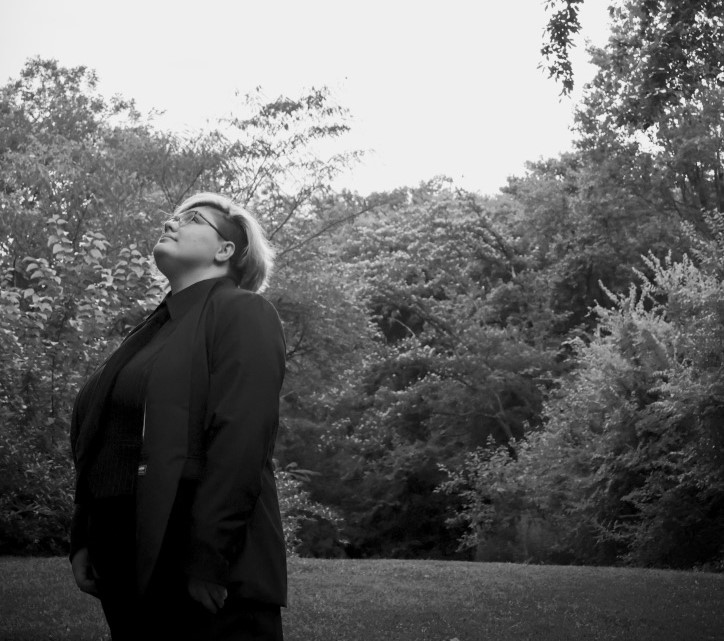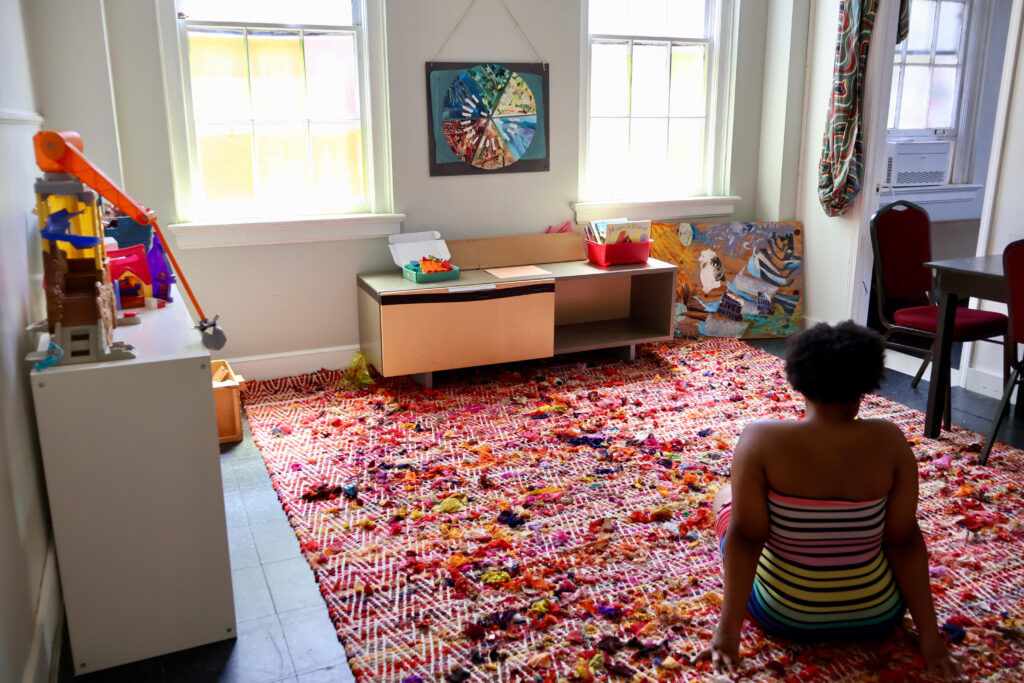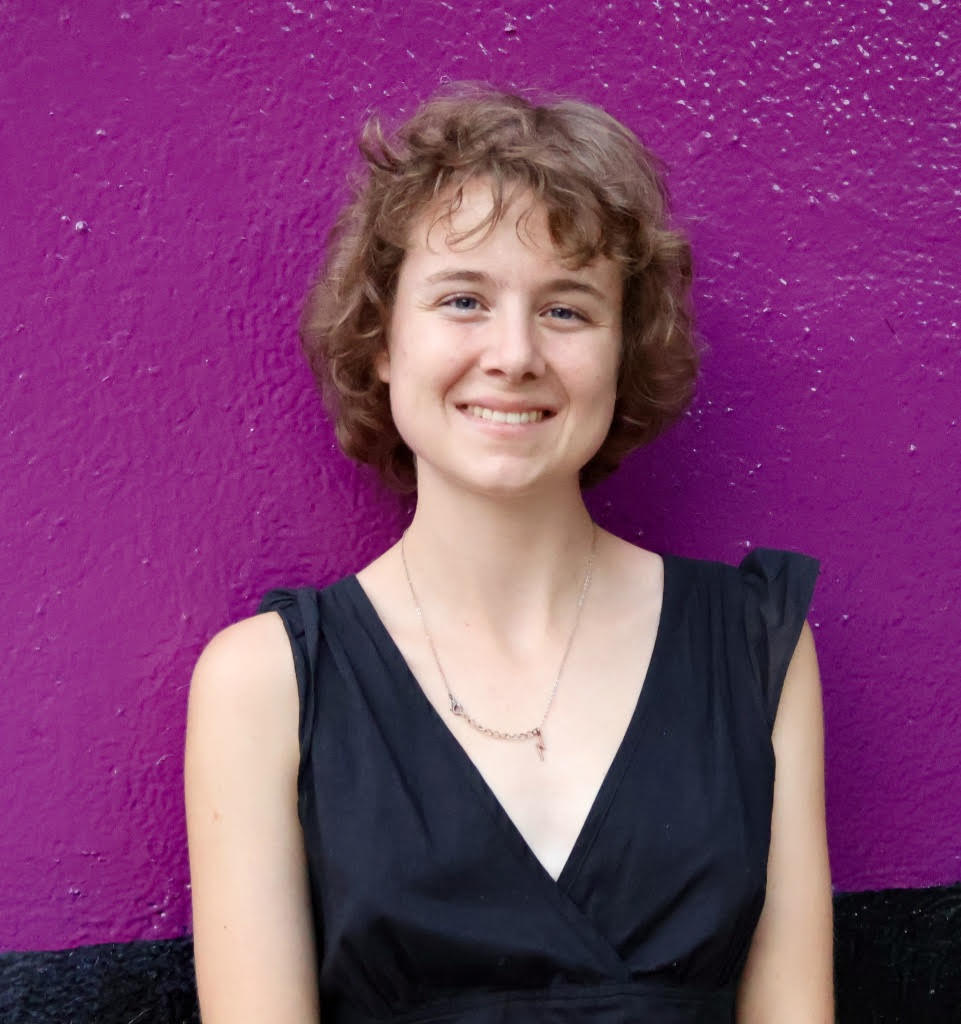Abortion and gender-affirming care are key issues in state and national electoral politics
On October 30th, 2023, in downtown Decatur, Georgia, a fire was intentionally set in the QueerMed Clinic. QueerMed provides patients with transgender, non-binary affirming hormone therapy and healthcare. Investigation results are not forthcoming, though a QueerMed employee reported the incident as a hate crime. QueerMed no longer operates out of the Decatur clinic location.
Dr. Izzy Lowell, founder and owner of QMed, knows that this closure contributes to an already scarce landscape of physician healthcare in the state and region, especially trans-affirming healthcare. “Transgender medicine … is nonexistent in many parts of the country, including parts of Georgia,” Lowell said.
Reproductive Justice is a social justice framework founded by women of color and trans people that advocates for bodily autonomy and against restrictions on abortion and gender-affirming care. This advocacy is especially important in a state like Georgia, where a “fetal personhood” law is in place – and legislation like SB 140 that bans hormone therapy for trans youth.
LGBTQ+ advocacy organization Georgia Equality states SB 140 “is harmful for all Georgians, not just the transgender youth the bill aims to restrict.” Georgia provides only 38% of the population-based need for primary care in the state. Dr. Lowell’s QMed practice utilizes primarily telemedicine to see patients. That access to care depends on whether or not patients can “travel out of state to a place where there is not a ban.”
The Search for Affirming Care
Truett is a non-binary, queer, 27 year old Georgian. They experienced severe abdominal and back pain connected to their IUD and called their OBGYN for a sick visit in June 2024, only to discover their insurance was no longer accepted. They called around their queer community to find a new, gender-affirming OBGYN, but they could not be seen until August.
“It’s super uncomfortable to go to the OBGYN … when you’re poking around in my vagina, that tends to bring up some gender dysphoria,” Truett said. They noticed most OBGYN intake forms did not include questions about preferred names or pronouns. Truett asked not to be “deadnamed” or given she/her pronouns, “praying to god they listen to you and have compassion.”
“It’s super uncomfortable to go to the OBGYN … when you’re poking around in my vagina, that tends to bring up some gender dysphoria.”
Truett eventually found an OBGYN who took their insurance, but their search for healthcare is not exceptional. According to testimony from Atlanta Obgyn Dr. Nisha Verma, in Georgia, “over 50% of counties have no OBgyns,” contributing to one of the highest maternal mortality rates in the country, and pregnant people in Georgia “struggle to access prenatal care.”

Dr. Verma spoke in the Decatur City Hall on July 23, 2024, as a witness for the United States Senate Subcommittee Hearing on the health impacts of the six-week abortion ban.
She emphasized the detrimental impact of HB 481, which bans abortion six weeks after the last menstrual period, not the last missed period, a common misconception. Dr. Verma is from Georgia, and in her published testimony entitled The Assault on Reproductive Rights in a Post-Dobbs America she wrote, “It is heartbreaking that in large parts of this country such as in my home in the South, people will not be able to access the same quality of care as those living in other parts of the country.”
Truett received an ultrasound and their results via telecommunication.
An endometrial polyp in their uterus caused enough pain that doctors would need to remove it, along with their IUD. The procedure would be a D&C or a Dilation and Curettage that opens the cervix to remove tissue from the uterus. D&Cs are also commonly used in miscarriages and abortions.
A nurse tech told Truett the polyp should have been removed before the IUD was inserted, which indicated a lack of proper medical attention. Truett felt “at a loss, which I feel like a lot in the medical industry, especially as somebody who needs to advocate even more for myself, as somebody who appears female, who is nonbinary, who’s also gay.”
Truett was offered over-the-counter painkillers for the D&C but no anesthesia unless they paid out of pocket. They paid for nitrous oxide, but even so, “it was pretty painful … I can’t imagine not having the 200 extra dollars to pay for the gas.” Dr. Verma noted this in her Senate testimony: ” Your access to evidence-based care depends on your zip code and your resources.”
The results of the upcoming election season may impact the legal restrictions placed upon the clinic and abortion funds like ARC. Rice-Henry works to ensure that in electoral politics, the conversation “is around reproductive justice and reproductive care … it’s so much bigger and broader than abortion.”
Abortion Fund Fights to Expand
ARC, Access Reproductive Care Southeast, is an Atlanta-based organization that combats this scarcity with abundant resources. According to co-executive director Alexia Rice-Henry, callers to the organization “get the most compassionate care that they possibly can.” ARC primarily provides tactical financial support for people who need abortions.
“We’re not pro-choice, we’re pro-abortion,” Rice-Henry said. The discourse around choice is often led by people who can afford to choose, when often, according to Rice-Henry, “many people don’t have that privilege,” meaning they don’t have access to safe housing, livable wages, or basic necessities like food.
Robyn is a 29-year-old, cisgender Black woman from Atlanta who experiences housing insecurity. Last year, Robyn struggled to make an appointment to confirm her pregnancy, unable to secure childcare for her young son. By the time she confirmed she was pregnant, she had passed Georgia’s six-week abortion ban. She called ARC for financial assistance.
“I didn’t consider I would be in this situation, so I was actually surprised to see how organized it was … empowering women to honor their choices,” Robyn said. She was connected to a case worker and given options – she chose to fly to North Carolina for a medical abortion, where the law is less stringent. The cost of Robyn’s abortion was waived, and ARC paid for her son’s childcare.
Robyn remembers taking a mifepristone pill in the North Carolina clinic with around twelve other pregnant people from out of state. Protestors waved signs outside. “A lot of discourse around women that don’t have children is that they’re selfish,” she said. Robyn knew she could not have another child because her partner at the time was controlling and abusive. She does not currently have Medicaid insurance, and without ARC, she would not have been able to pay.
Georgia’s lawmakers restrict Medicaid coverage for many people in poverty, while ARC is expanding the amount of support they can provide for callers, Rice-Henry said. “That means flights, hotels, Ubers, meal vouchers, gas cards. We try to work around the constraints that are being placed on us at the moment.”
Rice-Henry has always worked in movement and activism, especially queer organizations, and ARC fulfills her life goal to “do work where I was living in the community.” She values serving her home in the South because “as a Black, queer, cis female, I’m fighting for myself in all the work that I am doing.” She understands that abortion is not an isolated social justice issue.

“Connecting the dots and making it personal is part of the shift, sharing the message that abortion healthcare is very important,” Rice-Henry said. The “heart and culture shift” is part of ARC’s work that destigmatizes abortion as a common, safe medical procedure, identified by The American College of Obstetricians and Gynecologists as essential healthcare.
QMed affirms hormone therapy as a medically sound treatment, recognized by the Department of Health and Human Services as potentially life-saving for trans, nonbinary, and queer youth. Dr. Izzy Lowell said, “It’s not complicated. We just treat them with the amount of hormones they need to be themselves … the relief of having the right hormone in your body is profound.”
“Until There’s a Breakthrough, These are the Answers We Have”
When it comes to people’s lives and health, Lowell said, “Politicians stick to politics; let doctors and scientists treat patients medically.” The results of the upcoming election season may impact the legal restrictions placed upon the clinic and abortion funds like ARC. Rice-Henry works to ensure that in electoral politics, the conversation “is around reproductive justice and reproductive care … it’s so much bigger and broader than abortion.”
Truett has a nightmarish image in their head of being in “one of those old school anatomy theaters” with a light shining on their vagina and five surgeons at the operating table. In the mental image, Truett is screaming. They attribute this nightmare to “the way that I feel like we treat women’s bodies and people who present as female and have female anatomy.”
They cited a history of gynecology rooted in slavery and racism. The speculum, used to open the vagina, is a tool from the 1800s. “There’s sort of a collective understanding that until there’s a breakthrough, these are the answers we have,” they said. For now, “people like me are flocking to the people that actually show care,” they said.
Dr. Lowell loves her job despite the public and political backlash. “I got the best job in the world,” she said. “I get to treat people and make them happy.” Come arson or transphobia, Lowell continues to see patients at QMed. “It’s what medicine should be, and I love it.”
Zoey Laird

Zoey is a writer from Atlanta, Georgia. She grew up in Decatur and has lived in Gresham Park, College Park, and now Grant Park. Her writing about the Stop Cop City Movement was published in Scalawag and Mainline Magazine. ANI (Atlanta Narrative Imagination) is a project she created as an outlet for creative energy to be shared in many different mediums. She believes that the stories we tell shape the way we see the world.

0 Comments